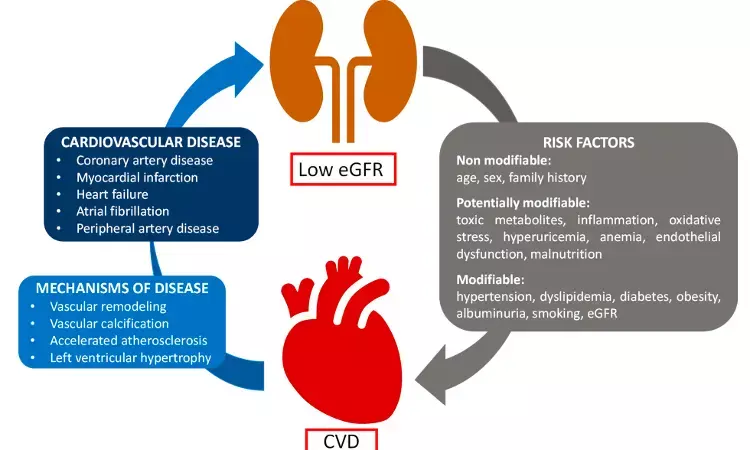- Home
- Medical news & Guidelines
- Anesthesiology
- Cardiology and CTVS
- Critical Care
- Dentistry
- Dermatology
- Diabetes and Endocrinology
- ENT
- Gastroenterology
- Medicine
- Nephrology
- Neurology
- Obstretics-Gynaecology
- Oncology
- Ophthalmology
- Orthopaedics
- Pediatrics-Neonatology
- Psychiatry
- Pulmonology
- Radiology
- Surgery
- Urology
- Laboratory Medicine
- Diet
- Nursing
- Paramedical
- Physiotherapy
- Health news
- Fact Check
- Bone Health Fact Check
- Brain Health Fact Check
- Cancer Related Fact Check
- Child Care Fact Check
- Dental and oral health fact check
- Diabetes and metabolic health fact check
- Diet and Nutrition Fact Check
- Eye and ENT Care Fact Check
- Fitness fact check
- Gut health fact check
- Heart health fact check
- Kidney health fact check
- Medical education fact check
- Men's health fact check
- Respiratory fact check
- Skin and hair care fact check
- Vaccine and Immunization fact check
- Women's health fact check
- AYUSH
- State News
- Andaman and Nicobar Islands
- Andhra Pradesh
- Arunachal Pradesh
- Assam
- Bihar
- Chandigarh
- Chattisgarh
- Dadra and Nagar Haveli
- Daman and Diu
- Delhi
- Goa
- Gujarat
- Haryana
- Himachal Pradesh
- Jammu & Kashmir
- Jharkhand
- Karnataka
- Kerala
- Ladakh
- Lakshadweep
- Madhya Pradesh
- Maharashtra
- Manipur
- Meghalaya
- Mizoram
- Nagaland
- Odisha
- Puducherry
- Punjab
- Rajasthan
- Sikkim
- Tamil Nadu
- Telangana
- Tripura
- Uttar Pradesh
- Uttrakhand
- West Bengal
- Medical Education
- Industry
What are key predictors Identified for CKD Progression After Renal Artery Stenting?

Researchers have found in a new research that Serum creatinine levels, pre-revascularization peak systolic velocity of the renal artery, and post-intervention acute kidney injury are independent predictors of chronic kidney disease (CKD) progression in patients undergoing renal artery stenting.
Atherosclerotic renovascular disease (ARVD) is the most common cause of renal artery stenosis (RAS). ARVD is associated with an increased risk of progression of kidney disease and high mortality. In this regard, the aim was to evaluate the effects of the factors on kidney functions in short- and long-term follow-ups. Patients with RAS treated with renal artery stenting since January 2015 were evaluated retrospectively in a single center.
The primary endpoint was a decline in the estimated glomerular filtration rate (eGFR) of ≥ 20 ml/min and/or evolution to end stage kidney disease. Predictors of the primary endpoint were determined using the Cox regression model.Results: Of the 95 patients included, 57 (56.4%) were male, and the mean age was 68.7 ± 10.4. Median serum creatinine (mg/dl) and eGFR (ml/min/1.73 m2) at presentation were 1.57 (IQR, 1.11–2.12) and 40 (27–58). The median follow-up was 31 months.
Indications for renal artery revascularization included high blood pressure (34 patients, 35.8%), kidney failure (29 patients, 30.5%), or a mixture of these (32 patients, 33.7%). RAS was unilateral in 67 (70%) patients. In the multivariate Cox regression analysis, serum creatinine (HR 2.03, 95% CI 1.3–3.2, p = 0.002), peak systolic velocity (HR 1.005 per 10 ms, 95% CI 1.001–1.010, p = 0.007), and acute kidney injury after revascularization (HR 10.18, 95% CI 2.3–45.4, p < 0.001) were independent predictors of progression of chronic kidney disease. Serum creatinine level, peak systolic velocity of the renal artery before revascularization, and acute kidney injury after angiographic intervention are independent predictors of the progression of chronic kidney disease in patients who underwent renal artery stenting.
Reference:
Oktan, M.A., Sarioglu, O., Heybeli, C. et al. Predictors of kidney disease progression after renal artery stenting. BMC Nephrol 26, 175 (2025). https://doi.org/10.1186/s12882-025-04097-0
Dr. Shravani Dali has completed her BDS from Pravara institute of medical sciences, loni. Following which she extensively worked in the healthcare sector for 2+ years. She has been actively involved in writing blogs in field of health and wellness. Currently she is pursuing her Masters of public health-health administration from Tata institute of social sciences. She can be contacted at editorial@medicaldialogues.in.
Dr Kamal Kant Kohli-MBBS, DTCD- a chest specialist with more than 30 years of practice and a flair for writing clinical articles, Dr Kamal Kant Kohli joined Medical Dialogues as a Chief Editor of Medical News. Besides writing articles, as an editor, he proofreads and verifies all the medical content published on Medical Dialogues including those coming from journals, studies,medical conferences,guidelines etc. Email: drkohli@medicaldialogues.in. Contact no. 011-43720751


